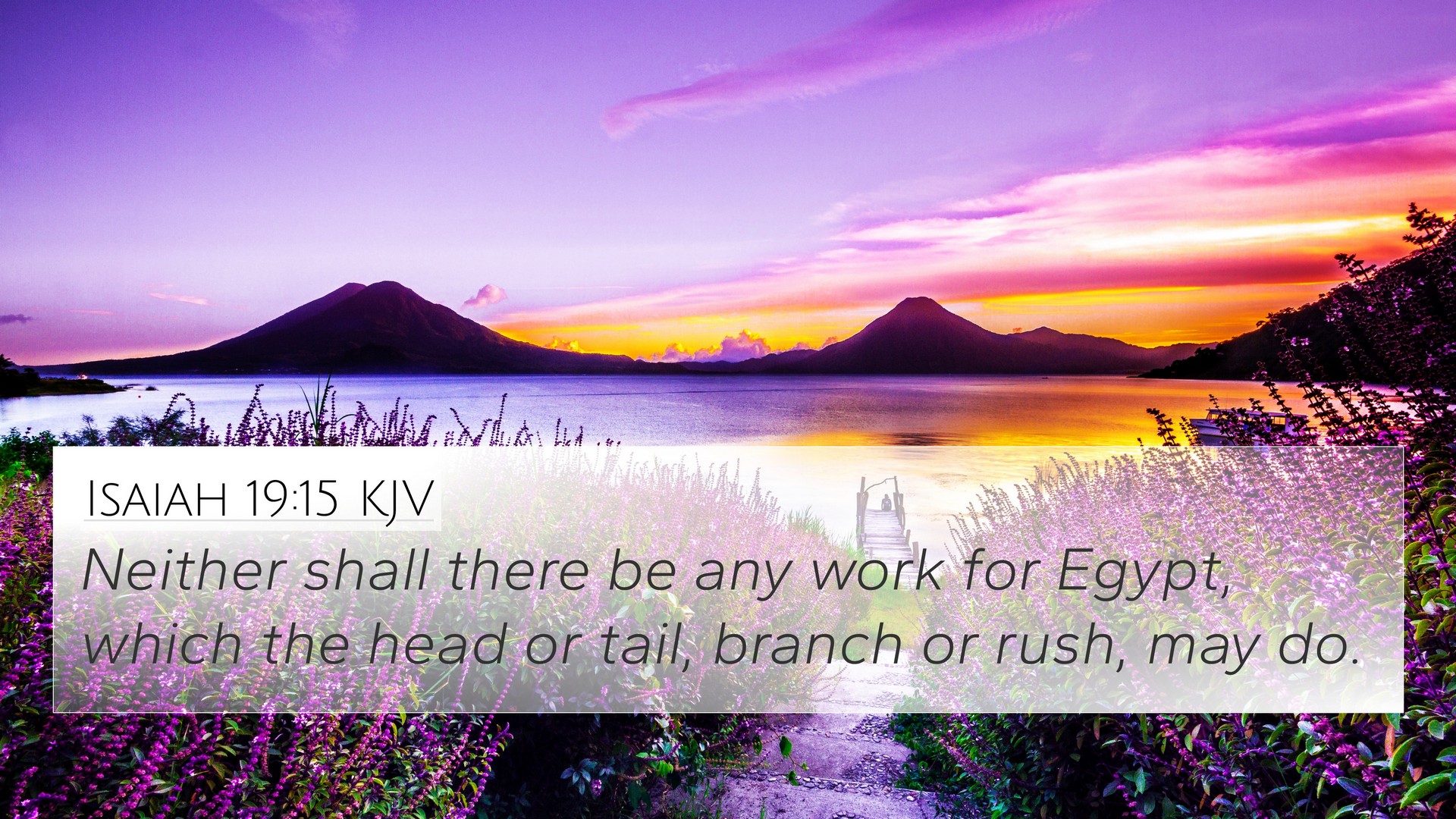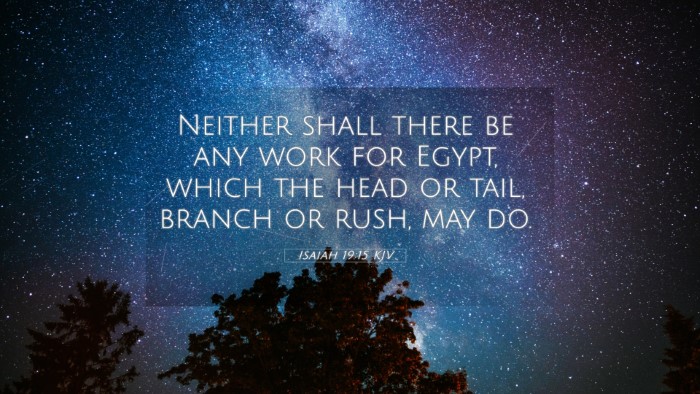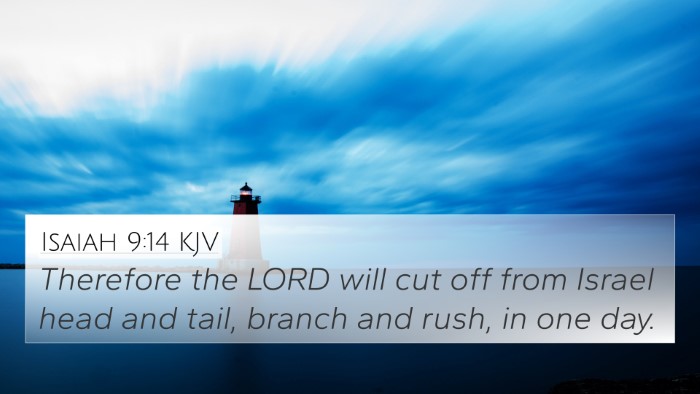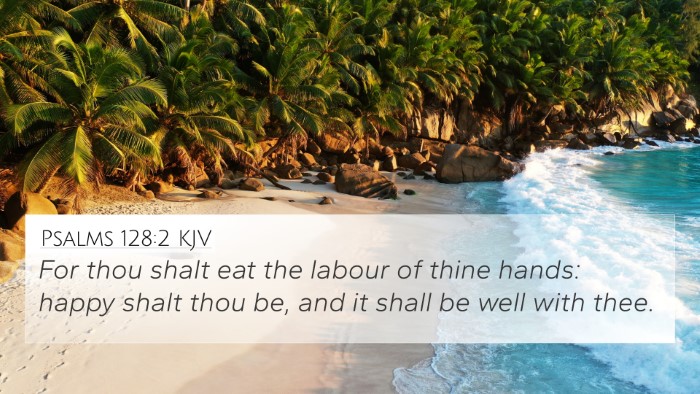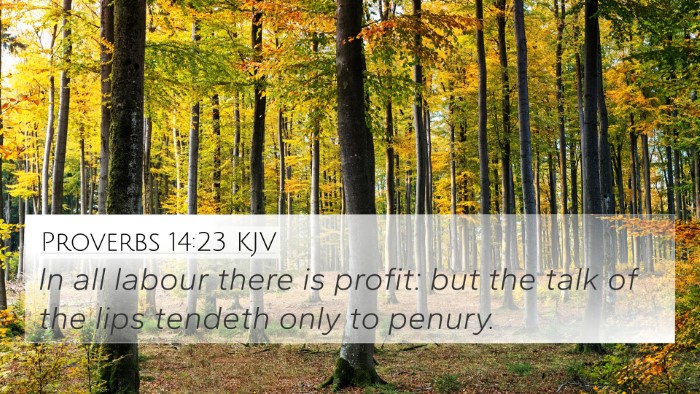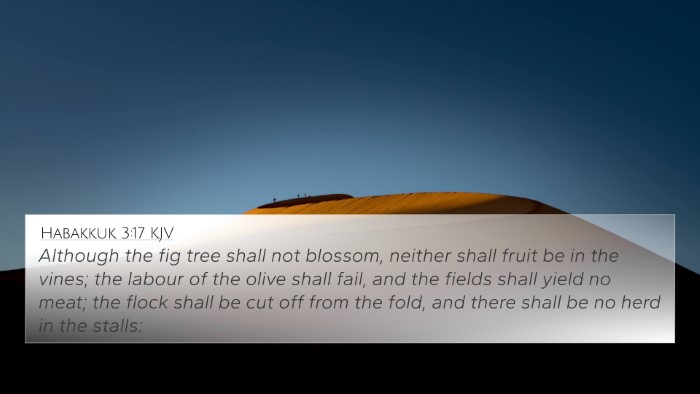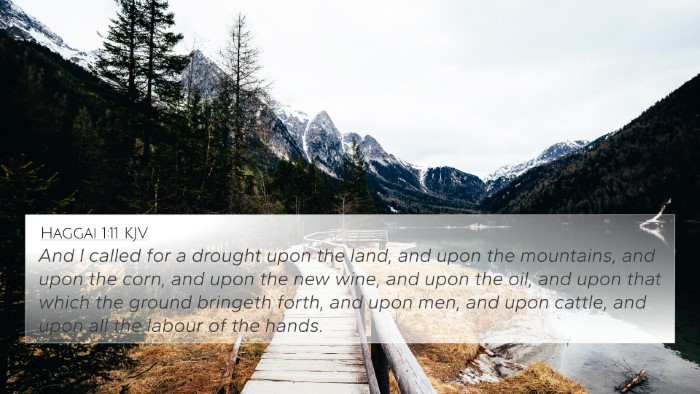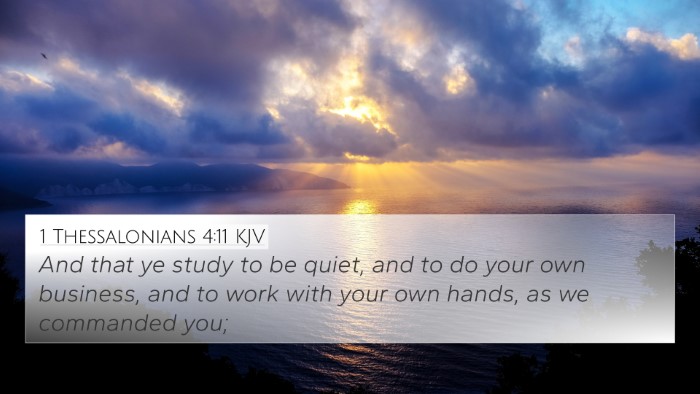Understanding Isaiah 19:15
Isaiah 19:15 states: "Neither shall there be any work for Egypt, which the head or tail, branch or rush, may do." This verse reflects a profound theme of futility and despair regarding Egypt's future, highlighting the consequences of turning away from God and failing to acknowledge His power.
This commentary synthesizes insights from renowned biblical scholars such as Matthew Henry, Albert Barnes, and Adam Clarke to provide a deeper understanding of the verse's meaning.
Context and Analysis
The Book of Isaiah, prophetic in nature, outlines various messages concerning judgment and hope. In Isaiah 19, the focus shifts to Egypt, symbolizing worldly reliance and pride. This passage particularly emphasizes the uselessness of Egypt's work and aspirations when separated from divine guidance.
Key Themes and Interpretations
-
Divine Judgment: The verse illustrates the judgment of God upon Egypt for its pride and reliance on human strength rather than faith. Matthew Henry emphasizes that Egypt will find its labor in vain due to its failure to turn to God.
-
Futility of Efforts: Albert Barnes notes that every effort in Egypt, whether by its leaders (the head) or its common people (the tail), will end in failure. This futility serves as a clear warning against self-reliance.
-
Hope Amidst Despair: Adam Clarke points out that despite this bleak warning, there is a theme of hope infused in the prophetic word. The ultimate message is one of restoration for those who turn back to God, even if it means enduring hardship temporarily.
Cross-References
Understanding Isaiah 19:15 benefits from the study of related scriptures that reveal additional layers of meaning. Here are several interconnected verses:
- Isaiah 1:19-20: Offers a choice between obedience and rebellion against God.
- Isaiah 30:1: Highlights the futility of seeking help from Egypt instead of God.
- Jeremiah 46:1-12: Discusses the judgment against Egypt as a nation.
- Psalm 127:1: Affirms that unless the Lord builds the house, those who build labor in vain.
- Proverbs 14:12: Warns that there is a way that seems right to a man but leads to death.
- Isaiah 33:22: Points to the Lord as the judge, lawgiver, and king, contrasting divine authority with human governance.
- Revelation 17:15: Uses imagery of nations being like waters, reflecting reliance on human powers instead of divine.
Connections between Bible Verses
Cross-referencing biblical texts enables scholars and lay readers alike to see the interconnectedness of scripture. Here, we explore the thematic connections that shed light on Isaiah 19:15 and its implications.
Linking Bible Scriptures
The thematic connections between these verses demonstrate a cohesive narrative about reliance on God. For instance, the warnings against Egypt's reliance on its own power resonate throughout Isaiah, suggesting a repeated call for humility and faith—a major theme in the prophetic books.
Cross-Referencing Bible Study
Engaging with cross-references not only enriches understanding but also opens avenues for deeper theological reflection and application in life. Tools such as a Bible concordance or a Bible cross-reference guide can facilitate this process.
Resources for Cross-Referencing
Here are some tools and methods to better navigate cross-referencing in scripture:
- Bible Concordance: A comprehensive directory that lists verses by key terms.
- Bible Cross-Reference Guide: Helps to locate verses that discuss similar themes across different passages.
- Bible Cross-Reference System: A systematic approach to tracing themes across the Bible.
- Cross-Referencing Bible Study Methods: Various methods like thematic studies, parallel readings, and contextual analysis.
Long-Tail Keywords and Their Relevance
Utilizing long-tail keywords allows for targeted searches, aiding those who seek to comprehend specific connections between passages. For instance, discovering "links between the Prophets and Apostolic teachings" can yield fruitful insights in the context of Isaiah 19:15.
FAQs: Understanding Cross-References
What verses are related to Isaiah 19:15? - This verse relates to themes expressed in Isaiah 1, Jeremiah 46, and Psalms. Each provides context about judgment, reliance on God, and the futility of human efforts.
How do Isaiah 19:15 and Isaiah 30:1 connect? - Both verses stress the danger of looking to worldly powers, such as Egypt, instead of finding strength and guidance in God.
What insights do these cross-references provide? - Combined, they reveal an overarching narrative about God’s sovereignty and the importance of remaining steadfast in faith amidst worldly distractions and challenges.
